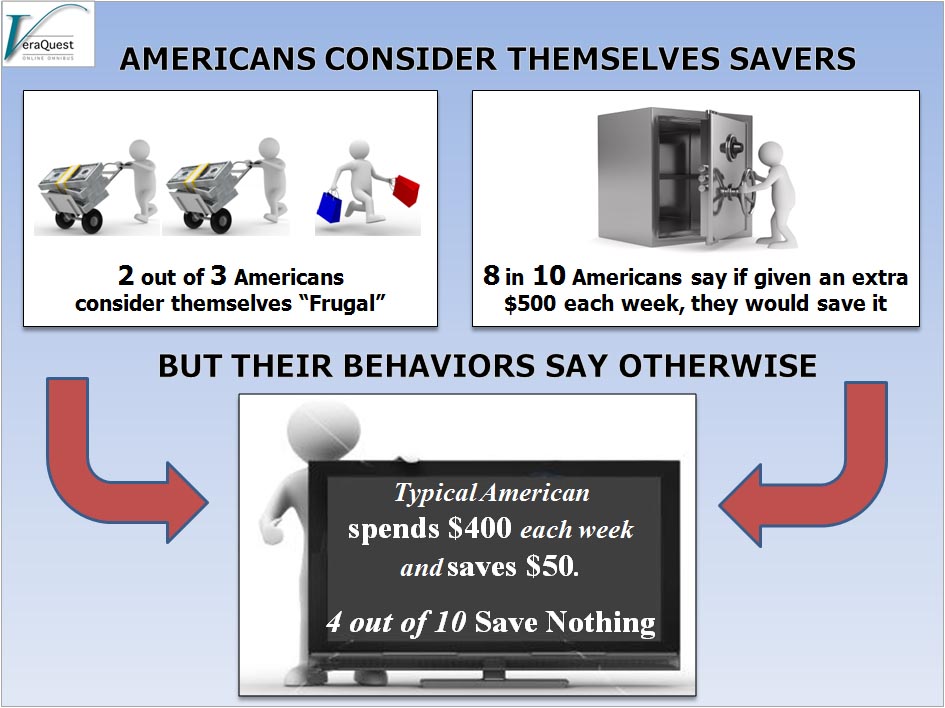So I know you’ve all taken those personality tests that tell you how outgoing you are or perceptive or cerebral. But here’s one for your pocketbook.
In general, we Americans are savers, at least we say we are. About 2 in 3 of us (on a scale of 1 “extremely frugal” to 10 “extremely extravagant”) mark ourselves on the frugal side of the spectrum. And more than 8 in 10 of us say if given an extra $500 each week, we would save it.
Now I don’t mean to cast doubt on this image of ourselves as penny-wise, but when we look at our actual behavior, we spend much more than we save. Each week, the typical American spends $400 and saves $50. And nearly 4 in 10 Americans save nothing.

We are also not a homogeneous group when it comes to how we think and act around money. As a population, our spend/save ratio is: 8/1 (see above). But for other demographic groups, this ratio is considerably less:
- Women = 10/1
- Men = 5/1
- Adults ages 30-39 = 5/1
- Adults ages 40-49 = 12/1
- Adults ages 50-64 = 6.5/1
- Adults ages 65+ = 10/1
- Married adults = 6/1
- Single adults = 12/1
- Northeasterners = 4/1
- Westerners = 4/1
- Southerners = 9/1
- Midwesterners = 10/1
And the irony here is that although women, adults ages 40+ and Midwesterners have some of the largest spending ratios, they are actually the most likely to describe themselves as “frugal” and most likely to spend the extra $500 if they had it each week. Looking more closely at the ratios, women and single adults appear to accrue less money in general, which may explain why they may spend what they have and save less.
But interestingly, the groups with the largest spending ratios are also the groups most likely to divorce money from happiness and love. As a population, we don’t tend to believe that money equals happiness (72%) or that it is acceptable to marry for money (86%). However, those with the lowest spending ratios (i.e., men and young adults) tend to be more tolerant of both of these concepts.
What’s your belief – can money generate happiness or love?
Check out Daniel Kahneman’s Thinking Fast and Slow for some compelling research on the topic, which follows “Money does not buy you happiness, but lack of money certainly buys you misery.”
Leave a Reply